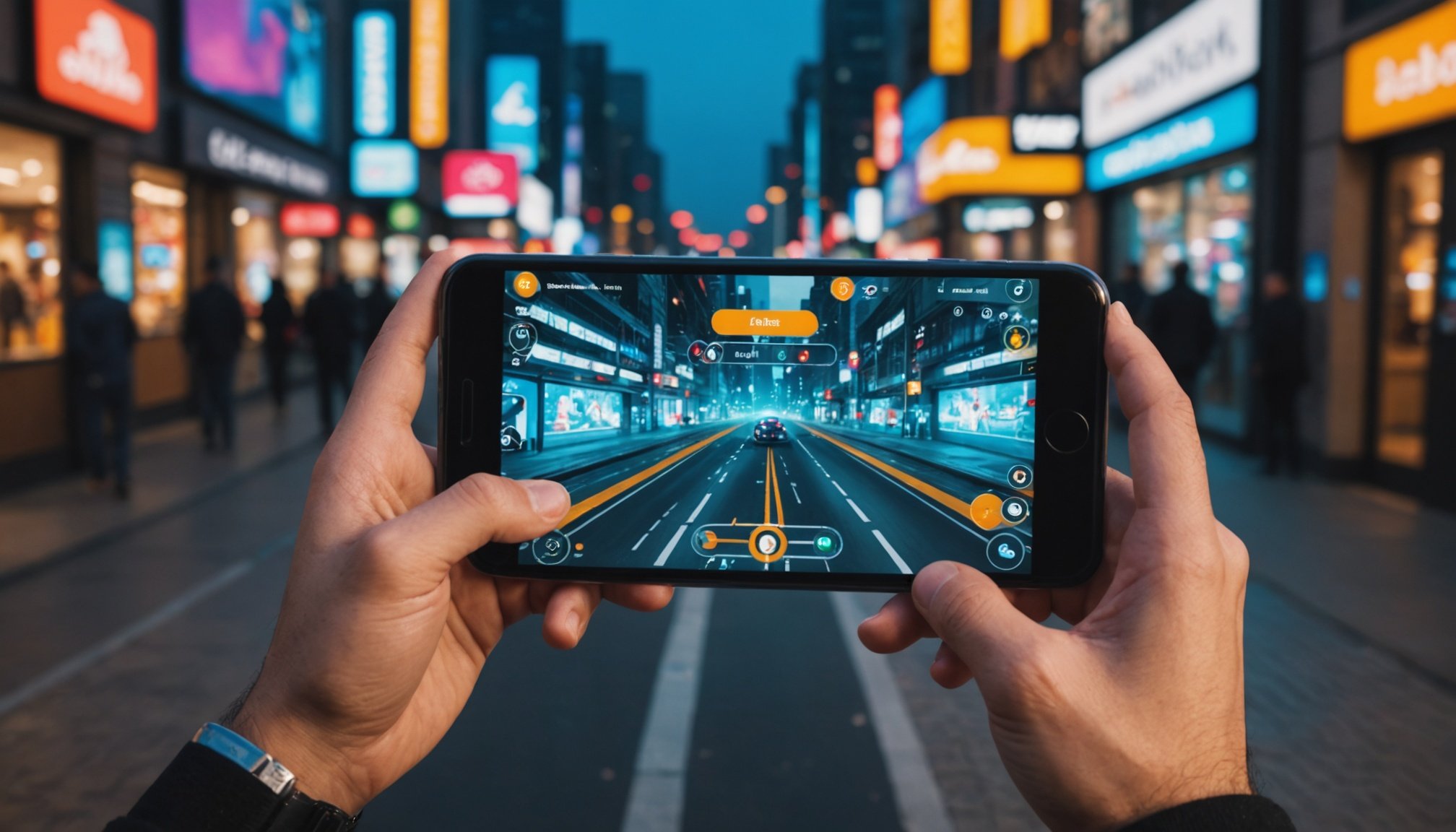Overview of AI-Driven Analytics in Mobile Gaming
The integration of AI in mobile gaming has brought a transformative shift in how games are developed and played. At the core of this transformation is the ability of AI to provide personalized gaming experiences by analyzing vast amounts of player data. This data-driven approach allows game developers to tailor experiences to individual players, enhancing their engagement and satisfaction.
AI applications in mobile gaming utilize advanced analytics tools and techniques, such as machine learning and neural networks, to gather and assess data in real-time. Through these tools, gaming companies can predict player behavior, optimize game mechanics, and even personalize content recommendations. The significance of these analytics is profound, resulting in more engaging and immersive gameplay.
Also to see : Transforming Underwater Exploration: Leveraging AI for Unmatched Realism in Dive Simulations
Moreover, AI’s capability to transform player interactions is evident in the development of smarter in-game characters and adaptive difficulty levels. Such features are created by analyzing player feedback and behaviors, allowing games to adjust dynamically to the skill and preferences of each player.
In essence, AI in mobile gaming has not only revolutionized game development but also significantly enhanced the overall player experience, making it more interactive and fun.
Additional reading : Mastering Fluid VR Experiences: The Ultimate Guide for Developers on Enhancing Mode Transitions
Case Studies of AI Influences on Player Engagement
In the realm of mobile gaming, numerous case studies highlight the transformative role of AI applications in enhancing player engagement. Successful implementations in popular mobile games illustrate how AI can dramatically change the gaming landscape. For example, some games employ AI to personalize in-game advertising, which increases player retention and revenue. Meanwhile, others use AI-driven storylines that adapt dynamically to player choices, thereby heightening engagement through more immersive narratives.
To gauge the effectiveness of these AI strategies, various metrics are used to measure player engagement improvements. These metrics often include session length, frequency of play, and player retention rates. Games that incorporate AI effectively tend to show marked improvements across these indicators, underscoring AI’s impact on maintaining player interest.
Feedback and behavioural data collected from players provide a detailed analysis of how AI influences gaming experiences. Through this data, developers adjust game features to better align with player expectations and preferences. Such adjustments can significantly enhance satisfaction and engagement by offering experiences tailored to individual play styles. Therefore, AI’s strategic application not only benefits developers in terms of commercial success but also enriches player interactions.
Methodologies of AI Analytics in Mobile Gaming
The methodologies of AI analytics in mobile gaming revolve around advanced data collection techniques. These methods capture vast amounts of player data to drive insights and personalisation.
Data Collection Techniques
AI leverages player interactions, in-game purchases, and session durations to build comprehensive datasets. These datasets serve as the foundation for player behavior analysis, giving developers a nuanced understanding of the gaming landscape.
Algorithms for Behavior Analysis
To decipher this data, developers use sophisticated algorithms. These AI methodologies analyse patterns and preferences, enabling game creators to predict player reactions and adjust content dynamically. The goal is to optimise player engagement by matching game features to individual interests.
Machine Learning Applications
Machine learning models fine-tune the personalized gaming experiences. By continually learning from player feedback and actions, these models evolve, ensuring gaming experiences remain fresh and engaging. This iterative process is key in keeping up with changing player preferences and maintaining high levels of engagement.
Through these methodologies, AI not only enhances the gaming experience but also opens avenues for innovation in mobile gaming. By understanding player behavior and preferences, these methodologies encourage game developers to craft more engaging and fulfilling gaming experiences.
Examples of Successful AI Implementations
AI in mobile gaming has led to successful applications that revolutionised player experiences. Some of the top mobile games harness AI tools to offer dynamic gameplay and adaptive challenges. One prime example is mobile RPGs employing AI-driven narratives, where storylines evolve based on player choices, significantly enhancing immersion and engagement.
Innovative features developed through AI focus on customising in-game content. By analysing player feedback, games can foresee potential pain points and adjust difficulty settings accordingly, maintaining player interest across skill levels. These adjustments ensure players remain challenged, stimulating prolonged engagement.
Developers have learned important lessons from successful AI adoptions. Paramount is the emphasis on real-time data analysis; using machine learning algorithms, developers can provide almost instant personalisation. This rapid feedback loop heightens player satisfaction, meeting expectations more precisely.
Moreover, these success stories underline the importance of prioritising player-centric design. By continuously refining AI models, developers can adapt to the fluid nature of player preferences. The integration of AI not only secures gaming success but also sets a benchmark for future innovations, making gaming success stories from AI implementations highly valuable for industry learning.
Expert Opinions on AI in Mobile Gaming
The integration of AI in mobile gaming is a hot topic, with industry leaders offering varied insights on its impact and potential. From the perspective of game developers, AI plays a critical role not only in enhancing player engagement but also in testing new boundaries in game design. They highlight AI’s ability to dynamically tailor experiences, keeping games fresh and players intrigued.
Industry experts unanimously agree that future AI advancements will likely focus on heightening realism and interactivity within games. Specifically, there is optimism surrounding the integration of AI with technologies like VR and AR, aiming to create immersive environments that closely mimic real-world experiences. These advancements could redefine player engagement.
Furthermore, experts discuss the importance of AI in retaining players long-term. With the gaming landscape becoming increasingly competitive, AI’s role in personalising and adapting gameplay is essential for maintaining interest. However, they acknowledge potential challenges, such as balancing AI-driven personalization with the player’s need for autonomy. Overall, the consensus among industry professionals is that AI is not just reshaping how games are developed and played but is also a cornerstone for future innovations in the sector.
Challenges Associated with AI Analytics in Mobile Gaming
AI integration in mobile gaming has unveiled numerous challenges, largely revolving around data privacy, limitations, and ethical considerations. As AI becomes more ingrained in gaming, safeguarding data privacy concerns becomes crucial. Games collect vast amounts of player data to personalize experiences, raising significant privacy issues as players increasingly value transparency on how their data is utilised.
Balancing personalization with player autonomy is another challenge. While AI-enhanced customization improves engagement, it risks overwhelming players with algorithmic decision-making, potentially stifling creativity and freedom in gameplay. Striking a balance ensures players retain control over their experiences without compromising on the benefits of personalization.
Technical limitations in AI algorithms pose yet another obstacle. AI might struggle with complex decision-making processes, leading to oversimplified game mechanics or repetitive patterns, which can diminish player satisfaction. Current machine learning models often require vast computational resources, making them less feasible for some developers.
Ethical considerations remain a prime concern, as the power of AI can sometimes be misused, leading to biased game elements. It is essential to navigate these limitations carefully to foster both responsible game design and enriching player interactions, ensuring a sustainable future for AI in gaming.
Future Trends of AI in Mobile Gaming
AI in mobile gaming is driving the future of gaming by intertwining with emerging technologies. These advancements aim to elevate player engagement and immersion levels. In particular, the integration of virtual and augmented reality (VR and AR) is anticipated to redefine interactive gaming experiences. This fusion can create more immersive environments, allowing players to interact in ways that mimic real-world experiences. As such, VR and AR could soon become core components of mobile gaming.
Predictions also highlight AI’s potential to further enhance player experiences. Through continuous learning and adaptation, future AI systems are expected to offer more sophisticated personalization, understanding nuanced player preferences. These personalized experiences could redefine gaming narratives, offering dynamic and evolving storylines crafted in real time.
Furthermore, evolving AI trends are likely to emphasize cross-platform synchronization, enabling seamless transitions across devices while preserving personalized settings. This capability would enhance convenience and strengthen player retention. As technology advances, AI in mobile gaming promises not just to maintain engagement but to revolutionize how we perceive gaming itself, making it an ever-evolving and captivating journey.










